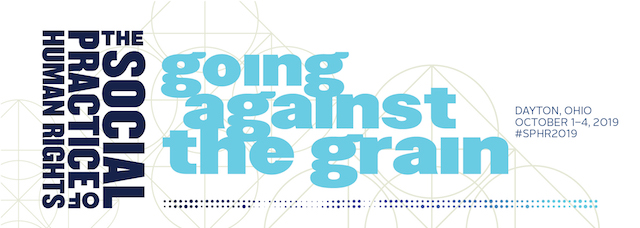Paper/Proposal Title
Human Rights and the Smart City
Location
Local Human Rights Movements
Start Date
10-4-2019 8:30 AM
End Date
10-4-2019 10:00 AM
Keywords
human rights, marginalized communities, technology, smart city
Abstract
This paper examines how technological solutions, information and communication technologies (ICTs), and smart city initiatives can become avenues to produce urban spaces that reflect fundamental human rights values such as non-discrimination, equality, and access for all.Cities today are drivers of human rights activity and serve as hubs for technological advances, political and economic innovation, and social justice. Nevertheless, the inclusion of marginalized communities continues to be a challenge. ICTs and smart city initiatives are often cited to foster urban integration, to improve citizen participation in decision-making processes, and to enhancecommunity resilience. At the same time, using technologies can amplify social and economic polarization and leave those at the margins further behind. The challenge is to employ technological solutions in ways that promote human rights and empower marginalized groups. This paper establishes a theoretical framework that relates human rights to the city and defines the inclusive, human rights-focused smart city and presents empirical evidence of smart cities that have integrated inclusive technological approaches.
Author/Speaker Biographical Statement(s)
Dr. Tina Kempin Reuter is the Director of the Institute for Human Rights and Associate Professor in the Department of Political Science and Public Administration and the Department of Anthropology, specializing in human rights, peace studies, and international politics at the University of Alabama at Birmingham (UAB). She is also a Human Rights and Technology Fellow at the Harvard Kennedy School’s Carr Center for Human Rights Policy. Before joining UAB, she was Director of the Reiff Center for Human Rights and Conflict Resolution at Christopher Newport University and worked at the Solomon Asch Center at the University of Pennsylvania, the Institute of Public International Law at the University of Zurich, and the Center for Security Studies at ETH Zurich. Her research focuses on human rights with a particular emphasis on the struggle of marginalized populations including minorities, persons with disabilities, refugees and migrants, women, children, the LGBTQ community, and people dealing with the consequences of poverty. She studies how to use technology to improve access, inclusion, and participation of marginalized communities in society. Dr. Reuter holds a PhD in International Relations and International Law and an MA in Contemporary History, Economics, and International Law from the University of Zurich, Switzerland.
Included in
International Relations Commons, Social and Cultural Anthropology Commons, Social Work Commons
Human Rights and the Smart City
Local Human Rights Movements
This paper examines how technological solutions, information and communication technologies (ICTs), and smart city initiatives can become avenues to produce urban spaces that reflect fundamental human rights values such as non-discrimination, equality, and access for all.Cities today are drivers of human rights activity and serve as hubs for technological advances, political and economic innovation, and social justice. Nevertheless, the inclusion of marginalized communities continues to be a challenge. ICTs and smart city initiatives are often cited to foster urban integration, to improve citizen participation in decision-making processes, and to enhancecommunity resilience. At the same time, using technologies can amplify social and economic polarization and leave those at the margins further behind. The challenge is to employ technological solutions in ways that promote human rights and empower marginalized groups. This paper establishes a theoretical framework that relates human rights to the city and defines the inclusive, human rights-focused smart city and presents empirical evidence of smart cities that have integrated inclusive technological approaches.



